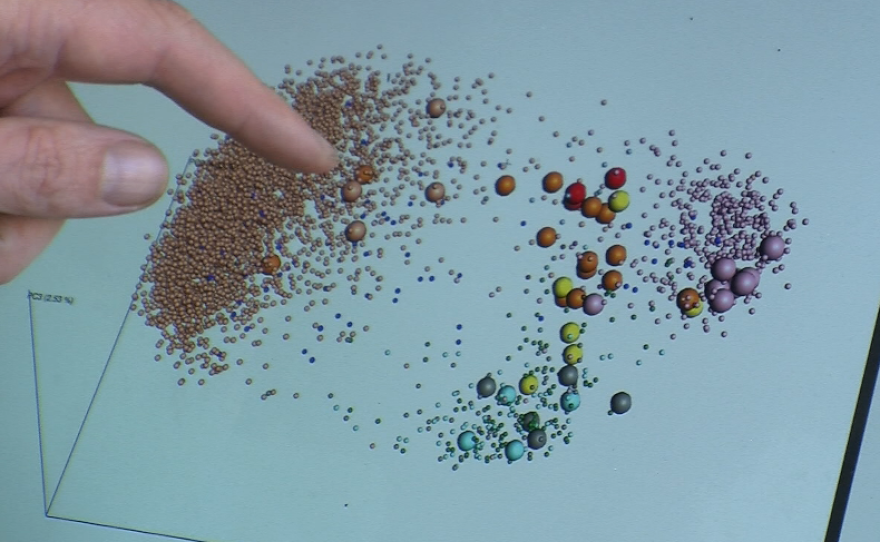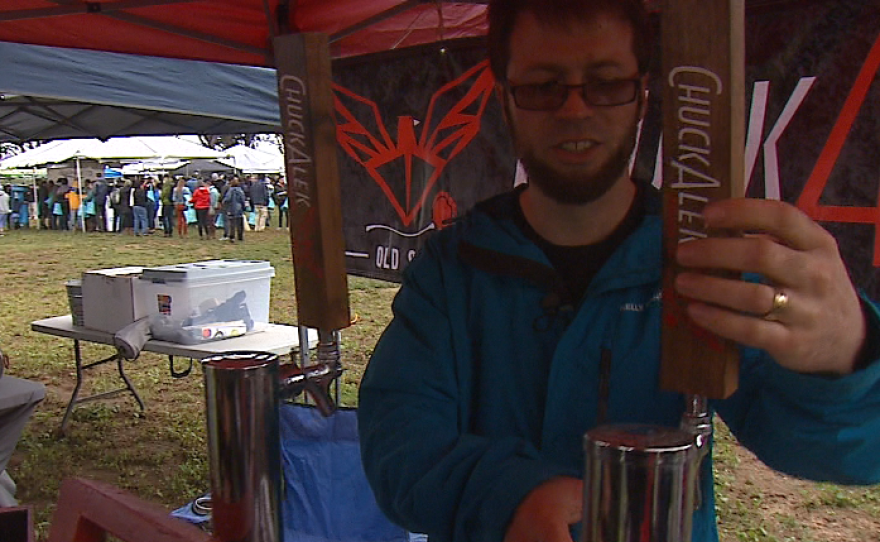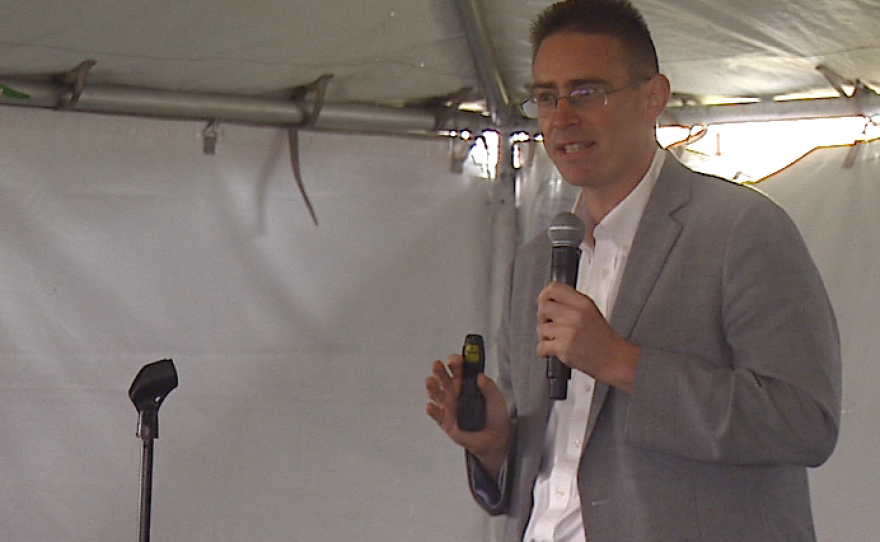If you've ever enjoyed a nice San Diego craft beer, you have fermentation to thank. The buzz you got was from ethanol, a byproduct of fermentation.
Beer might not be the healthiest thing to drink, but San Diego scientists suspect various kinds of fermented foods and drinks could have beneficial effects on the microbes in our guts. They're connecting with local fermentation fans to find out more about the links between fermentation and human health.
At the San Diego Fermentation Festival, people packed cabbage and other seasonal vegetables into air-tight Mason jars. When they finished, they sealed the jars and let bacteria get to work breaking down sugars and producing tangy lactic acid. In a few weeks, the result should be a delicious twist on sauerkraut.
"People like me have re-discovered the tradition of fermented foods," said festival organizer Austin Durant. "People love it, they get that it tastes good, it's good for us and there's an economy around it. There's so many reasons why it's making a comeback."
The festival's many booths offered a bounty of locally made fermented goods. Attendees could sample everything from craft beer to kimchi — wine to kombucha. UC San Diego's Rob Knight got interested in the festival because he and his colleagues wanted to sample something else: microbes.
"We're really excited about the possibility of sampling people who eat a lot of fermented foods," said Knight, who heads up the American Gut Project, an ongoing effort to catalogue the trillions of microbes found in the human body.
Thousands of curious volunteers have already sent Knight samples swabbed from their tongues, their hands and their feces. That has given Knight a good baseline picture of the microbes found in a standard human gut. But he also wants to know what's going on in guts that aren't so standard.
"In the American Gut Project, we've been seeing that people who eat more fermented foods tend to have a higher diversity in their gut microbes," he said.
Gut microbes are known to play a role in digestion, immune system function and even mood. Knight wants to know more about the connection between gut health and fermented foods.

Fermentation is a process rich in living microorganisms known as probiotics. There's already some evidence that specific probiotics can ease symptoms of conditions like irritable bowel syndrome.
But how exactly does making and eating fermented food change a person's gut microbes? Which specific foods or drinks should people consume to get a desired probiotic effect?
Knight reached out to festival organizers to start coming up with answers to these questions. He was able to obtain an array of samples from 12 festival participants before the event. He handed out more sample kits — complete with test tubes, sterilized Q-tips and convenient mailers — to attendees at the festival.
"It wasn't like a doctor's visit where you're getting probed," said Grant Fraley, a craft brewer who provided samples.
"We swabbed our tongue, our hands, some of our beers, cutting boards, things like that."

Fraley and his wife run a small brewery in Ramona called ChuckAlek. Fraley makes one particular beer, a sour blonde, that derives its unique flavor from bacteria.
"Normally in beer, we don't let any bacteria in," he said. "We attempt to keep it just to yeast as the main actor in fermentation. But we intentionally put Lactobacillus in this beer to make it tart, kind of zesty and refreshing."
Researchers with the American Gut Project can now see how making and drinking sour beer may be affecting Fraley's gut microbes, and how that may influence his gut health. They'll analyze the microbial genes found in Fraley and compare them with their existing database, teasing out similarities and differences.
Knight doesn't yet have enough samples from fermentation enthusiasts to draw detailed conclusions about how their gut microbes deviate from the norm. He wants to collect a lot more, because he's hoping to put hard data behind a feeling shared by many people at this festival — the feeling that embracing fermentation has changed them for the better.
"That could be all kinds of things," said Knight. "Like just feeling they have better energy, to more specific things like remission of irritable bowel syndrome or other specific conditions. What's really exciting to us is turning those feelings into something more scientific."
So if there is a scientifically sound reason to feel good about improving gut health while drinking beer, San Diego craft beer fans should hope Knight finds it.






